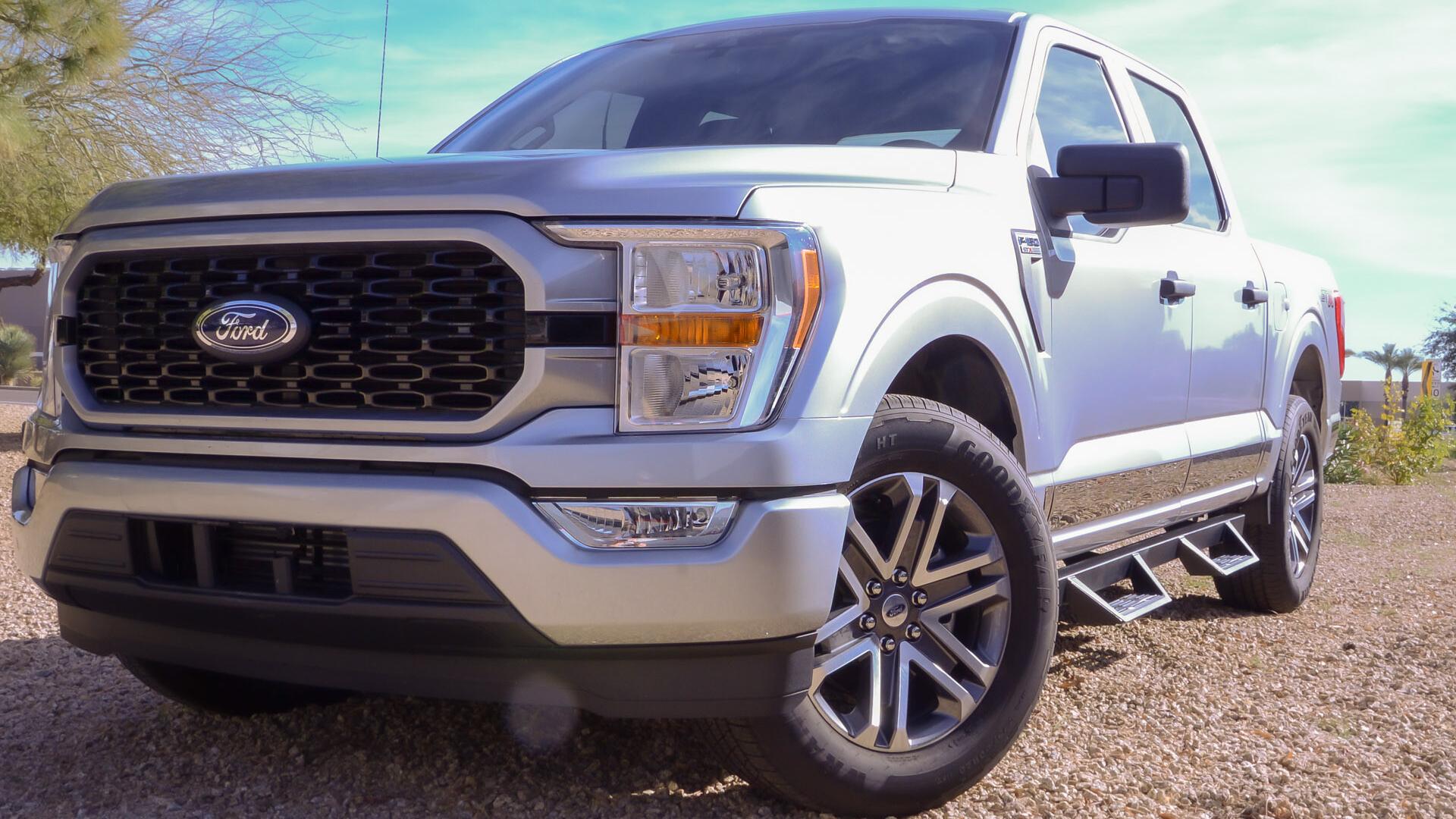Ford recently unveiled its first all-electric pickup truck, the F-150 Lightning, and it’s causing quite a stir in the auto industry and among car and truck aficionados.
“I think it’s a real game changer for electric vehicles,” says Jim Motavalli, freelance writer and blogger for Car Talk. “There are 900,000 [F-150’s) sold every year, and yet you couldn’t get any kind of pickup in an electric.”
The specs of the truck are “extremely dramatic,” Motavalli adds. It has a 2,000-pound payload, it can tow 10,000 pounds, the base model has a 230-mile range — a more pricey version has a 300-mile range — and it allows the owner to offload excess electric power from the truck to run other things, like tools, items at a campsite, or machines at a worksite. You can even power your house from it.
These are, obviously, features that do not exist on regular trucks, Motavalli points out. In addition, the all-electric F-150 comes standard as a SuperCrew, which means it’s a five-passenger vehicle.
Sales of plug-in vehicles in the US are only about 2% of the market, so in terms of cleaning up America’s skies and making a dent in climate change, EV’s are not yet making a substantial difference. But it’s possible that the new F-150 will become the first really big seller nationwide, Motavalli believes.
Related: Over half of new car sales in Norway are electric or hybrid vehicles
The relatively low price doesn’t hurt, he adds. The base model costs about $40,000. Include the federal $7,500 EV tax credit and the price drops even further. Most analysts were expecting the F-150 Lightning to cost more because all the other electric pickups coming on the market are priced way above that.
“Any SuperCrew pickup for [$33,000] is a good deal, but with all the features on the electric, it’s like a home run.It’s not surprising they’ve taken like 40,000 advance orders for this thing.”
“Any SuperCrew pickup for [$33,000] is a good deal, but with all the features on the electric, it’s like a home run,” Motavalli says. “It’s not surprising they’ve taken like 40,000 advance orders for this thing.”
Startups like Rivian and Bollinger plan to bring all-electric trucks to the market soon, but their price tags are quite high. The Bollinger truck will cost around $125,000. General Motors announced an electric version of the Hummer that will start around $70,000.
Related: Why reducing carbon emissions from cars and trucks will be so hard
GM is also coming out with a Silverado electric but so far, the company has just said it’s going to have 400 miles of range, Motavalli says. The price point is unknown.
“But they’ve got to take a look at what Ford just did, and they’re probably drastically reducing the price they plan to ask because of this,” Motavalli says. “By coming in so low, they really have changed the market, I think. Everyone was expecting it to be a lot more expensive and if you expect Ford to make a profit, it probably would be more expensive because of how much batteries cost.”
Ford will probably lose money on the F-150 Lightning, at least for a while, Motavalli says, but “that’s how a company like Toyota ended up dominating the hybrid market — by offering the Prius at probably a money-losing proposition initially.”
Motavalli offers the example of Tesla as a way to predict Ford’s likely impact on the EV truck market. Tesla has been dominating the luxury EV market and all the makers of the so-called supercars have noticed that people are buying Teslas instead of other options, like Ferraris, because the Tesla can actually be faster.
“It’s why all the supercars are talking about switching to electric motors now,” Motavalli says. “You can really get a lot more bang for the buck, as they say.”
In fact, he points out, most of the major auto manufacturers are no longer investing money in new engine programs.
“They’re not, say, commissioning a new V8 or a new V6 engine,” Motavalli says. “It would be pointless. It would only be on the market for a year or two. So instead, the engines we’ve got now are pretty much the ones we’re going to have. They’re not going to build anymore. They’re putting way more money into electrification than they are into continuing the internal combustion vehicle.”
Related: France moves to end sales of gas-powered cars by 2040
While the exact timetable is unclear, Motavalli predicts a “heavy concentration” of electric vehicles on the market by 2035, and perhaps by 2040, no new internal combustion cars at all.
“It’s still slower than we probably need it to be for climate change and other reasons, but I do think that pivot is now inevitable and it doesn’t need government regulation or mandates,” Motavalli says. “It’s going to happen.”
This article is written by Adam Wernick based on an interview that aired on Living on Earth from PRX.
